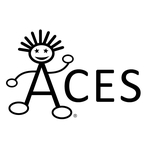Leading autism services provider finds meaningful differences between training approaches
IRVINE, Calif.–(BUSINESS WIRE)–Children with autism have measurably better outcomes when their caregivers participate in team-based training, according to a report released today by ACES 2020, LLC (“ACES”), the country’s leading provider of services to people with autism and other special needs.
“The reality that caregivers are vital to their child’s outcomes has been well documented in ABA research for the last few decades. Our study showed that outcomes also are influenced by the type of training they receive,” said Stephanie Scheer, Senior Director of Research and Innovation for ACES. “The key is that caregivers have to be able to use the training at home. If their learning is limited to the clinic or classroom, that’s not as helpful.”
ACES delivers caregiver training through its Caregiver Collaboration Network (CCN), a team of Caregiver Collaboration Specialists who help caregivers focus on their individual goals, ensure the caregiver feels competent and confident in working with their child, and enhance quality of life for the whole family.
Before the CCN was created in November 2021, all caregiver training at ACES was one-on-one.
Change in format brings increased utilization
To support anecdotal data gathered at ACES’ clinics in eight states, the ACES research team focused on four families who began receiving ABA services before the CCN was launched and got involved with the network as their child’s treatment continued. Before receiving their caregiver training from the CCN — when the only option was to receive such services solely from their primary supervisors — these families used, on average, only 55% of their insurance-authorized caregiver training hours. After engaging with the CCN, that increased to 75%.
“That’s a huge increase. The families found the collegial workshop setting, led by clinicians whose No. 1 priority is caregiver education, to be more engaging,” Scheer said.
Better clinical results were noted, too
In a larger analysis of 500 clients, families in the CCN saw an average gain of 3.9 points on their child’s Vineland Adaptive Behavior Scales Adaptive Behavior Composite (VABS-ABC), compared to an average gain of 2.5 points for the children of caregivers who were not involved with the CCN. Any change greater than 0 in a VABS-ABC score is seen as progress, so the greater the change, the more an autistic individual gains access to their environment and independence.
“So we have strong reason to believe that our network-based approach to caregiver training leads to more training and better results,” Scheer said.
About ACES
ACES is dedicated to enhancing the quality of life for individuals and families impacted with autism or other special needs. Founded in 1996 by Kristin Farmer, ACES provides comprehensive, professional services to maximize individuals’ potential in the home, school, clinic and community using accepted teaching and ABA therapeutic methodologies. ACES operates in 79 markets in eight states, serving thousands of clients in Arizona, California, Colorado, Hawaii, North Carolina, Oklahoma, Texas, and Washington with a long track record of positive outcomes. Learn more at https://www.acesaba.com/.
Contacts
Media Contact: Leah Felty, M.S., BCBA, ACES VP of Clinical Excellence & Payor Partnership, [email protected]



